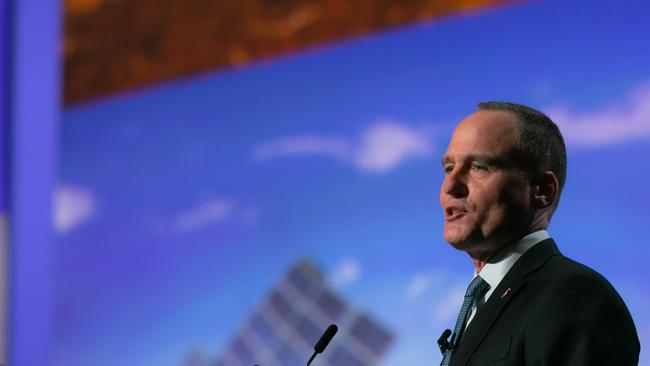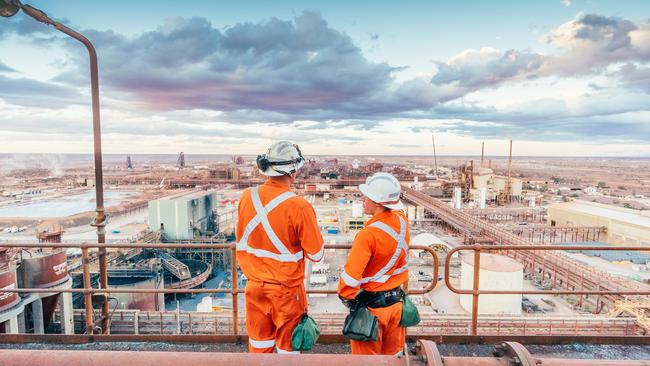BHP defends business case for $2m donation to Yes campaign
BHP has defended its $2m donation to the Yes campaign saying it was good for business and vital to getting new resource projects off the ground around the country.
BHP chairman Ken MacKenzie has defended the global resources giant’s $2m donation to the Yes Voice campaign saying there was a ‘business case’ for support as it sought Indigenous approvals for expanded mineral exploration.
Mr MacKenzie told a shareholders’ forum on Thursday that as a general rule companies should not get involved in contested social issues unless there was a “strong linkage” to their business operations and interests.
Mr MacKenzie said strong connections with First Nations people was needed as BHP met rising demand for core commodities including copper, iron ore and metallurgical coal.
“There needs to be a thick line connecting the social issue to the business case,” said Mr MacKenzie. “I can’t think of a social issue with a greater connection to BHP’s business case than indigenous advancement.”
Mr MacKenzie’s defence of BHP’s support of the Yes campaign comes amid growing criticism of large companies backing causes that do not have general community or shareholder support. Mr MacKenzie was asked several questions at the forum including why BHP did not donate an equal amount to the no campaign.
“We have been supportive of indigenous constitutional recognition since 2015,” he said. “Our relationship with traditional owners and other indigenous partners is one of the most important relationships we have as a business.”

BHP, Rio Tinto, Anthony Pratt, Wesfarmers, the Paul Ramsay Foundation, NAB Foundation, ANZ and Qantas have publicly disclosed more than $26.7m in donations to Yes23, including subsidised travel costs and office space.
Mr MacKenzie said that around the world the company partnered widely with indigenous communities and had long-term agreements with traditional owners and other First Nations peoples. “These are critical relationships to BHP’s ability to start new projects, expand existing projects and to operations continuing,” he said.
“They also go to the heart of what we do as a mining company and they are integral to our business success and to the creation of long term shareholder value.”
He said BHP had engaged extensively over the past 18 months with “many representatives” from traditional owner groups to develop a reconciliation action plan. “This engagement confirmed that our indigenous partners expected BHP to advocate for a Voice,” he said.
Mr MacKenzie said the choice in the referendum was always with the Australian people but for BHP its support for the Voice was clear was “always in the best interests of the company.” “The Australian people have spoken and we respect that result,” he said.
“For BHP, we will continue to progress the implementation of our reconciliation action plan and that’s our path forward from here.”

Mr MacKenzie said BHP remained focused on future facing commodities including copper. nickel and potash. “Copper is a major focus of our exploration activities globally,” he said. “We will create a new copper province opportunity in South Australia by combining our existing Olympic Dam operation and the Oak Dam discovery.” Exploration undertaken to date by BHP has indicated the presence of high-grade copper and associated minerals at Oak Dam.
He said the company’s iron ore trade with China would continue to strengthen despite growing global political uncertainties. “We’ve developed and we continue to have long standing stable and mutually beneficial relationships with our Chinese customers,” he said.
“In terms of geopolitical issues, the reality is they’re outside of our control but it’s something that we spend a lot of time thinking about.”
He said global economies and supply chains over the last 40 years had come together in a period of very strong economic co-operation but now the world was becoming more polarised between east and west. “Having said that I am very optimistic,” Mr MacKenzie said. “There is a mutual dependency here. China is the biggest customer for iron ore and so we need them but they don’t have iron ore and they need Australia. There’s really only one other source of supply and that’s Brazil. And so there’s this mutual dependency between China and Australia.”



